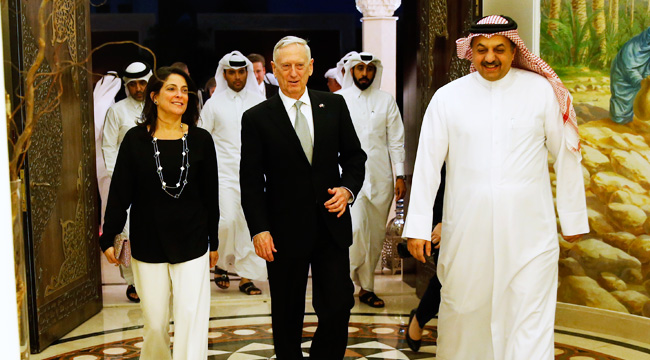
Something is rotten, and it is neither in the state of Denmark nor in a Trump-referencing production of Julius Caesar. It’s in the United States’ foreign embassies, which are draining of top diplomats. If you follow the exiting ambassadors as Hamlet followed his father’s ghost, you’ll find a number of troubling foreign policy dilemmas — the latest of which is the abrupt exeunt of the U.S. ambassador to Qatar after she criticized President Trump on Twitter as tensions escalate in the Persian Gulf.
Dana Shell Smith, who has built her career on foreign service and has served as the envoy to Qatar since 2014, had become increasingly firm on her disagreement with the Trump administration. On May 9th, Smith wearily tweeted of the difficulties in communicating U.S. policy to foreign leadership, and on the 31st, directly opposed Donald Trump’s recent comments that Qatar is a terrorist financier. Her tweets bookended the President’s first foreign tour, which included a visit with the Qatari emir in Riyadh, Saudi Arabia (not to mention a spooky photo op with a sinister glowing orb).
Increasingly difficult to wake up overseas to news from home, knowing I will spend today explaining our democracy and institutions.
— Ambassador Timmy Davis (@USAmbQatar) May 10, 2017
#Qatar is a strong partner in combating terrorist financing and we will continue our work together. https://t.co/kddFQSD7TC
— Ambassador Timmy Davis (@USAmbQatar) May 31, 2017
Smith’s resignation comes on the heels of a dramatic turn in the years of tension between Saudi Arabia and Qatar. After Saudi Arabia, the United Arab Emirates (UAE), Egypt and Bahrain cut ties with Qatar, Secretary of State Rex Tillerson tried to ease tensions in the Gulf and prevent further erosion of good will. But then President Trump entered the fray with his typically brash and impulsive style of diplomacy, repeating the accusations of terrorist funding and then trying to take credit for Saudi Arabia slamming the door on Qatar.
So good to see the Saudi Arabia visit with the King and 50 countries already paying off. They said they would take a hard line on funding…
— Donald J. Trump (@realDonaldTrump) June 6, 2017
…extremism, and all reference was pointing to Qatar. Perhaps this will be the beginning of the end to the horror of terrorism!
— Donald J. Trump (@realDonaldTrump) June 6, 2017
This isn’t the first time that Trump has undercut his own administration on foreign policy matters. There was also the debacle in Germany when Trump went off script to blast NATO allies at the unveiling of the new NATO headquarters. Nor is Smith the only diplomat to protest Trump’s policies.
The U.S. ambassador to China quit last week after Trump’s decision to withdraw from the Paris Climate Accord, though the State Department insists it was a personal decision. That also leaves the United States’ relationships with China in an awkward position as the two superpowers uncomfortably shift on a seesaw of environmental policy and international influence. Then there is the acting U.S. ambassador to the U.K who has been tweeting in opposition to Trump’s criticism of London Mayor Sadiq Khan after the terrorist attack at London Bridge.
And now Smith is out. It will be even harder for Tillerson to keep the peace without Smith’s longstanding relationships with Qatari leadership, and for the State Department to avoid the “humanitarian consequences” of which he has tried to warn Trump. It seems the line increasingly shared by U.S. diplomats is “to leave, or not to leave, that is the question.”
